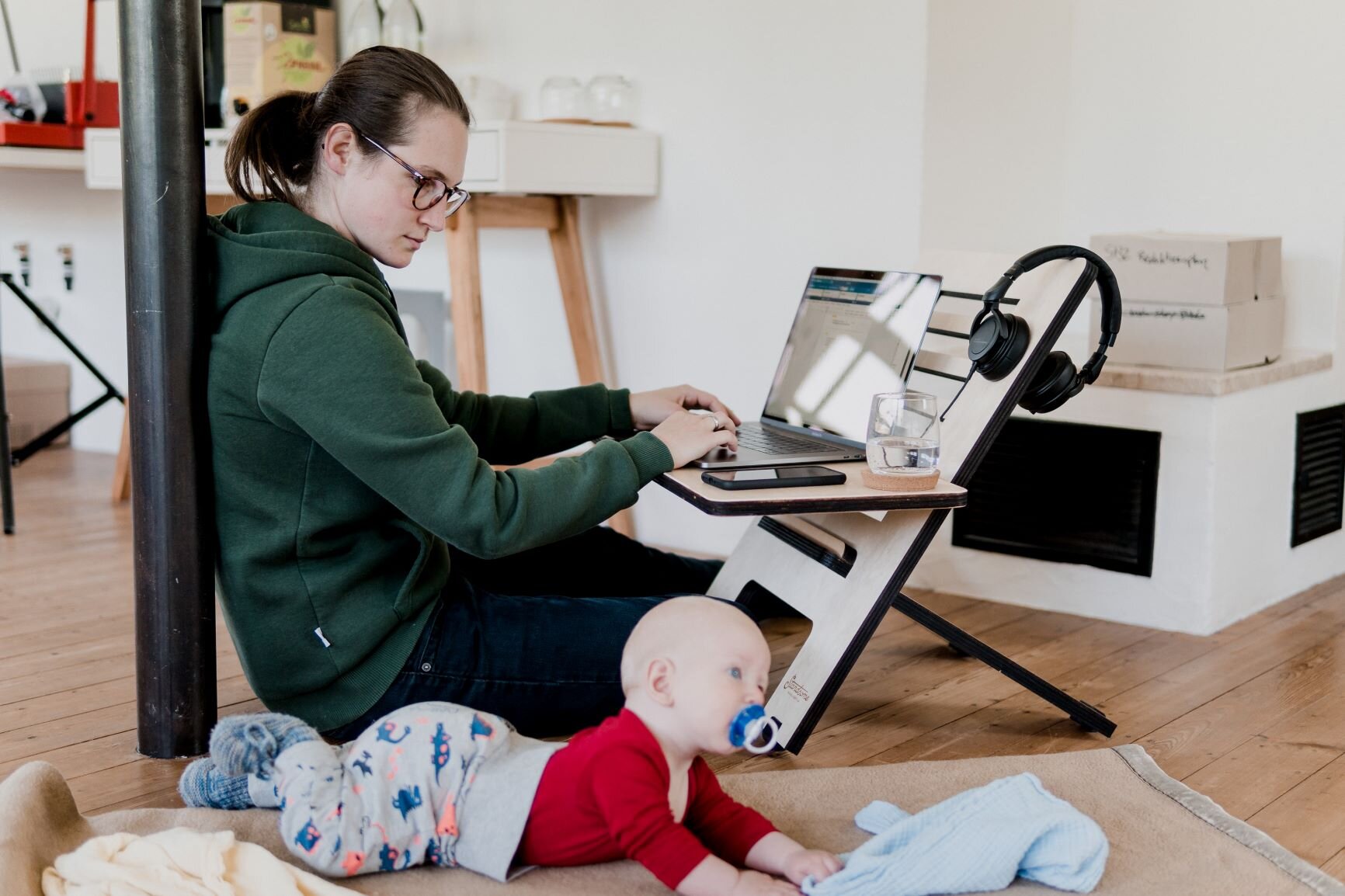Home Sweet HomeOffice: Part 1
The Bottom Line:
Small biz owner, gig worker, the self-employed may qualify to deduct home office expenses
W-2 Employees can’t – but employers might reimburse
Business Use of Home Commandments for *All Workers*:
Regular/Exclusive Business Use
Records Records Keep All the Many Beautiful Records
Mind your Percentages
The Home Sweet HomeOffice Question
A common 2020 question for many workers besides “when will this mess year end” and “whys the bottle always empty” was whether those working remotely would automatically qualify to deduct home office expenses @ taxtime.
The Home Sweet Answers
The short answer for the small business owner/ solo-preneur/ inde contractor/ self-employed/ gig worker is: most likely #Yes! Y’all can skip to the Condensed Juicy Bits below re business use of the home & then-- tune in next week!
Ostensibly the short answer for employees — those working on a W-2 — is #No. Cue workers simultaneously nursing the baby, Zoom screen-sharing a whiteboard, and building the kid a Johnny Tremain diorama screaming “GIRL WHUT EXPLAIN.” We got you: an employee home office deduction is a “miscellaneous itemized deduction” and the Tax Cuts and Jobs Act eliminated miscellaneous itemized deductions for 2018-2025.
However, if your work was rendered virtual by the pandemic and your employer didn’t initially buy your home set-up, there might be other options.
Employer Reimbursement
Firstly, your employer might reimburse you. Tax law allows for employers OPTING to reimburse workers for legitimate costs. It's not just good business: it would, if it meets requirements for the Home Office Deduction and follows an Accountable Plan, be deductible and tax free.
What means these word phrases? Requirements for the “home office deduction” (which would apply both here and for the self-employed) will be discussed lightly below & muchly in a subsequent newsletter. An “accountable plan” is an agreement whereby employers can reimburse workers in a way that complies with the IRS. There are three main components:
1. The employee must be working from home solely per the employer (Covid-caused virtual work qualifies) and expenses are solely for business: i.e. computers, printers, a separate phone line, have no (0, zilch, nada, none) personal overlap.
2. The employee must substantiate all: we’ll talk records again later but the Prettiest Records In All the Land for tax purposes might include: actual receipts, written financial journal/diary/etc linking those receipts to business activity, or applying an approved allowance rate to a purchase or activity
3. Any funds not used must be returned: give back them unused clams.
If this accountable plan is followed, amounts paid are not income and not shown on a W-2. If it is breached, this reimbursement money is added on to the employee’s yearly salary as taxable wages.
Disaster Payments & Required Reimbursement
Another way employers might cover expenses is as Qualified Disaster Relief Payment. Defined by the IRS “to include any amount paid to or for the benefit of an individual to reimburse or pay reasonable and necessary personal, family, living, or funeral expenses incurred as a result of a qualified disaster,” like the pandemic. The advantage of these payments is that no accountable plan is needed. The drawback is that, although obvious work-related expenses are reimburseable, paying for a portion of an employee’s mortgage or rent may be #questionmark.
What if an employer doesn’t employ any of these?
In some circumstances, employers arerequiredto reimburse—this is true if you work in California, Illinois, Iowa, Pennsylvania, Montana, and New Hampshire. And legally, an employer any old wheres must reimburse if an employee’s necessary home office costs cause their salary to fall below the minimum wage (Fair Labor Standards Act).
Lastly, if you work a full-time job on a W-2 and have a side-hustle for which you worked from home, you might qualify for home office expense deductions for just that gig business.
Condensed Juicy Bits re Business Use of Your Home
We will chirp muchly later but here’re general quick & dirty things to mind re home office expenses for both reimbursed employees & the self-employed itemizing deductions:
1. Regular/Exclusive Business Use & Principal Place of Business: designated office area/equipment, used only for business, no personal overlap, on a daily-ish regular basis. It doesn’t have to be your *only* place of business, but must be used exclusively for business/ meeting clients/ admin work/ trade & business use, etc
Regular use examples: Personal laptop used to Reply All on a beanbag chair in front of the TV 1c/week?: #no. Pantry turned into wee home office containing only your work laptop & phone?: #yes
Principal place of your business/trade use examples: Reading trade-adjacent periodicals on the loo?: #no. Meeting your real estate clients (virtual or no) in your she-shed-turned-office 4-5 days/week?: #yes
2. Percentages: what percentage of your home is your designated office space? This applies more to the self-employed & becomes relevant for total-home expenses like mortgages, rents, repairs, depreciation, etc.
3. Record keeping: Records are key for expenses. The Prettiest Records in All the Land always include 1. Physical documentation (receipts, cancelled checks, etc.) and 2. Written documentation (accounting book or diary). Proof of expense (like a line on a credit card statement) is NOT proof of eligibility so keep your receipts as much as possible.
IRS language can skew dense but Pub 587 re Business Use of the Home has some clear, concise examples & user-friendly graphics for more info.
Keep an eye on what you've spent legitimately and solely for business, keep those Record Records All the Lovely Records, tune in the next few weeks for more Exciting Expenses Elaboration, and you’re sure to have a Good Day.







